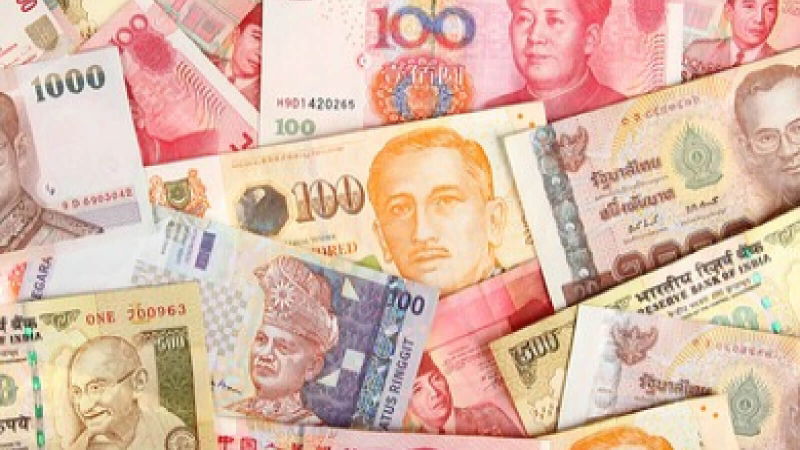
Study: Metaverse impact on Asia's GDP to hit up to US$1.4 trillion by 2035
share on
The impact of the metaverse on GDP in Asia could be between US$0.8 and US$1.4 trillion per year by 2035, which is roughly 1.3% to 2.4% of overall GDP. According to Deloitte's new report titled "The metaverse in Asia - Strategies for accelerating economic impact", this may come to fruition over the long term should there be sustained technology investments made in the next five to 10 years. How much is actually realised, and how quickly, depends on the unique strategies the underlying economies may take to accelerate economic benefits of the metaverse.
There is currently awareness of the metaverse in Asia. South Korean app Zepeto, for example, has more than 300 million registered users globally. Last year, Seoul also said it hopes to create a metaverse by 2023 that allows citizens to meet with avatar officials to deal with civil complaints and consultations. Indonesia's Telkom also rolled out its own metaverse in August this year to promote local firms.
The metaverse is envisioned to create new market, business and employment opportunities as well as improve the way society works, consumes and collaborates. If these developments are fully scaled, it will be transformational for the more than four billion people who live, work, and play in the region, Deloitte said.
In fact, Asia is an interesting region to keep an eye on for metaverse developments. For example, the region dominates the hardware supply chain in terms of raw materials and the manufacture of electronics and semiconductors. On the regulatory front, Deloitte said Singapore, Hong Kong, India and others are creating positive business environments and instituting clear regulatory guardrails, ensuring businesses and consumers alike can engage with the metaverse safely.
Also, Indonesia, Thailand and Vietnam are pioneering new business models, especially among small- and medium-sized enterprises, and innovating with Web3 and blockchain technologies.
Duleesha Kulasoorya, MD, Centre for the Edge at Deloitte Southeast Asia, said the metaverse is inevitable. He added that developing the technology stacks, human capital and regulatory frameworks to realise Asia’s trillion-dollar metaverse potential will benefit a wide range of industries and economic activities.
"The successful future of the metaverse calls for action not just by governments, but all ecosystem actors. While the metaverse is still in its early forms, it is now a good time for businesses and players to experiment, find their edge in the metaverse, and identify opportunities to scale these edges," he said.
Deloitte's report showcases the potential impact of the metaverse in 12 Asian economies - Singapore, Indonesia, Hong Kong, India, Japan, Mainland China, Pakistan, the Philippines, South Korea, Taiwan, Thailand, and Vietnam, and highlights the strategies that these economies are adopting to reap the rewards of the metaverse.
For Singapore, in particular, the potential 2035 economic impact of the metaverse is US$9 billion to US$17 billion, or 1.3% to 2.4% of overall GDP. With a small population and few natural resources, Singapore’s transformation into a global economic and financial hub within five decades has been driven by political stability, robust regulatory frameworks, and a plug-and-play business environment that is open to investors.
According to Deloitte, these factors make Singapore a top pick for companies as a base for their metaverse operations in the region.
Key enablers for Singapore include its efforts to strengthen regulations for online safety and cryptocurrencies which will improve social acceptance, creating a vibrant ecosystem for technology and digital content creation businesses alike, and developing a strong bench of international and local digital talent.
The three key sectors to watch in Singapore are healthcare, urban planning, and gaming. For healthcare, Singapore has begun to use immersive virtual technologies to enhance medical education and medical services with Singapore conducting the world’s first holography-guided heart surgery.
As for urban planning, Singapore was one of the first countries to implement a country-scale digital twin, which can unlock commercial opportunities in multiple sectors from real estate to retail. At the same time, Singapore can also tap into the younger demographic that is expected to spend more time and money in the metaverse in the future.
Michelle Khoo, director, Centre for the Edge at Deloitte Southeast Asia, said Singapore can leverage its strong global reputation as a financial hub to be a key market that discovers ventures into the next internet, such as the metaverse. According to her, early pivots can be to attract top metaverse companies and investors to Singapore.
Related articles:
Publicis Groupe SEA and Mana Partners roll out gaming and metaverse offering
Gucci Vault enters metaverse with virtual world in The Sandbox
Study: Metaverse and NFTs among areas creators monetise
How metaverse tourism can drive up physical tourism dollars
share on
Free newsletter
Get the daily lowdown on Asia's top marketing stories.
We break down the big and messy topics of the day so you're updated on the most important developments in Asia's marketing development – for free.
subscribe now open in new window
